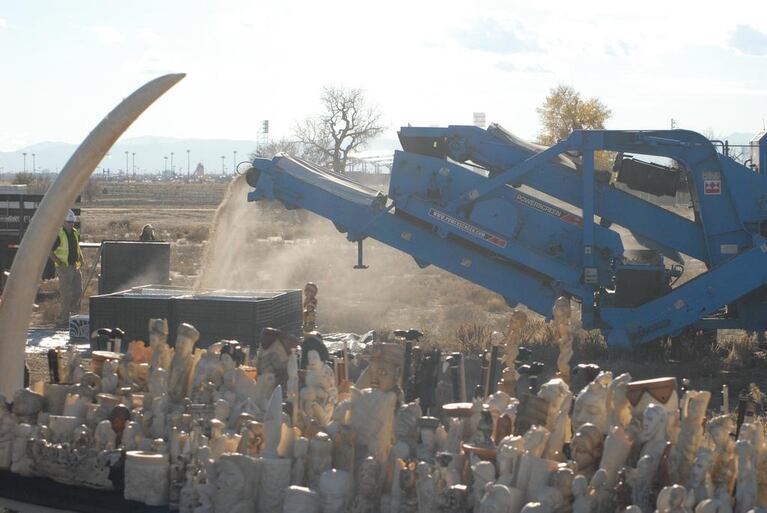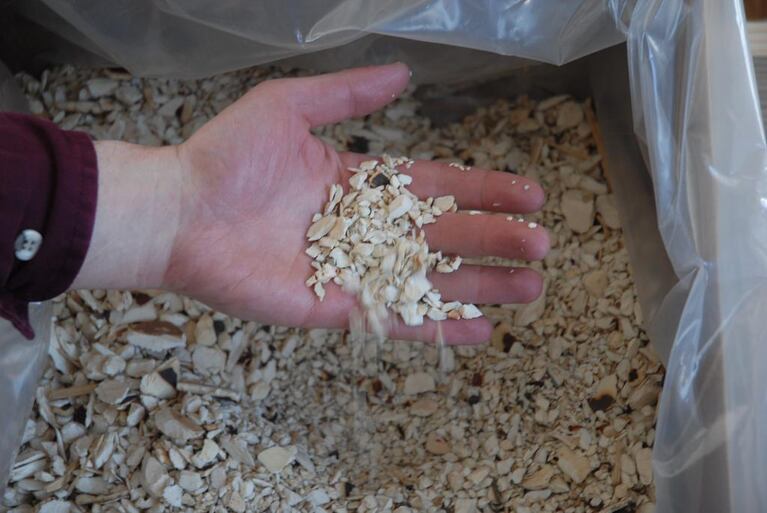
The crusher in action as it pulverizes the ivory. Six tons of confiscated ivory were destroyed.
U.S. Fish and Wildlife Service
The Washington Post reports that six tons of confiscated ivory have now been crushed:
“U.S. officials have destroyed more than six tons of confiscated ivory tusks, carvings and jewelry to send a message against elephant poaching that has reached record levels.The pyramid-shaped pile of ivory 10 feet high was dumped into a massive steel rock crusher Thursday at a U.S. Fish and Wildlife Service facility outside Denver.”
It was quite the media event, with its own ‘Crush Illegal Wildlife Trade’ logo and some TV celeb-activists.
Kristin Bauer, actress and IFAW Ambassador, Kristin Davis, actress and Patron for The David Sheldrick Wildlife Trust, and Joely Fisher, actress and IFAW Ambassador, pose with Dr. Paula Kahumbu, CEO of WildlifeDirect, at the U.S. Ivory Crush. Photo credit: Gavin Shire, USFWS
(You can check out the rest of the official photos of the event here.)
The 'crush' event stems from a presidential executive order issued in July to address illegal wildlife trafficking.
In an opinion piece on the National Geographic blog Bryan Christy says the symbolic gesture of destroying confiscated ivory stockpiles has been performed in other countries:
“Last year, Gabon burned 4.8 tons of ivory. Earlier this year the Philippines became the first non-African country to destroy its ivory stocks when it crushed five tons of ivory. Each was an act by a relatively poor country sacrificing a potential asset for principles that go beyond money. "The Philippines will not be a party to this massacre, and we refuse to be a conduit to this cycle of killing," Philippine Department of Environment and Natural Resources Secretary Ramon Paje said last summer, when his country crushed its ivory.”
Symbolic gestures are nice, but they aren’t enough, he says. Though import and export of African ivory has been banned in the U.S., domestic sale of ivory is still allowed. “As recently demonstrated by criminal cases in New York and Philadelphia, America's legal ivory market has offered an incentive for ivory smugglers,” Christy writes.
On the Guardian's Environment blog, African elephant advocate Dr. Daniel Stiles expressed even more concern in his commentary:
“USFWS will crush seized ivory, almost certainly sending a message to criminals that they had better step up their killing of elephants before all the ivory is gone.”
-- Toni Tabora-Roberts


